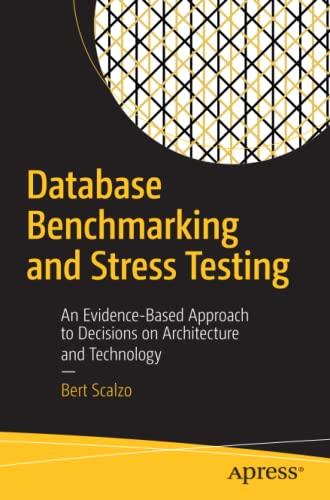Answered step by step
Verified Expert Solution
Question
1 Approved Answer
Given a hash table indexed from 0 to 4. Index 0 1 2 3 4 Value 17 15 and a sequence of keys: 5, 3,
Given a hash table indexed from 0 to 4.
Index
0
1
2
3
4
Value
17
15
and a sequence of keys: 5, 3, 2
Given the hashing function h(x) = (2x + 3) mod 5 and probe function p(i) = i3 , where x is the
key value and i is the number of steps taken along the probe sequence.
a)
Show the hash table after all keys has been inserted by h(x) and using the given probe
function when collision occurred.
(6 marks)
b)
What is the drawback of this method? Explain it in detail.
(4 marks)

Step by Step Solution
There are 3 Steps involved in it
Step: 1

Get Instant Access to Expert-Tailored Solutions
See step-by-step solutions with expert insights and AI powered tools for academic success
Step: 2

Step: 3

Ace Your Homework with AI
Get the answers you need in no time with our AI-driven, step-by-step assistance
Get Started


